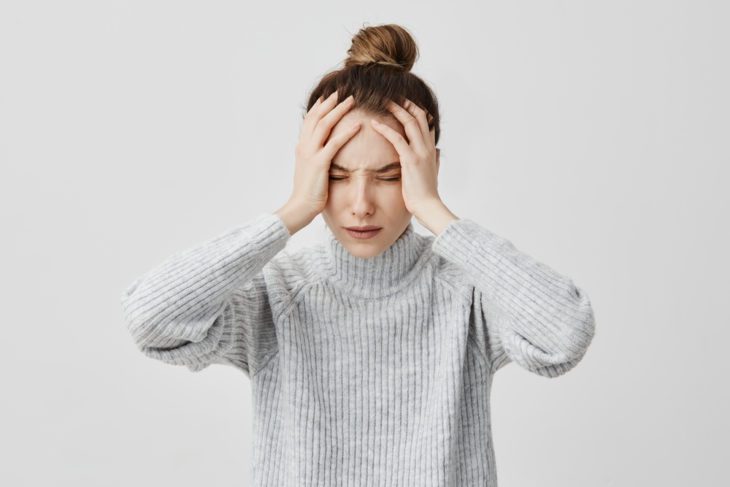Distressing physical symptoms can be caused by panic and anxiety disorders. Anxiety is the cause of their symptoms that most people are unaware of, which can lead to worsening the problem as they think the symptoms that they have come from a hidden disease which leads to more anxiety. By recognizing their physical symptoms and learning more about anxiety, this cycle can be broken. Below are the top 10 most common physical symptoms of anxiety.
1. Fatigue

The symptom that is commonly associated with panic disorder, depression, anxiety, and disorders of mental health is fatigue. Chronic anxiety has been leaving the mind and body in an uninterrupted state of high alertness and tension. Constantly, the mind scans the internal and external environment for any threats that lead to physical tension and emotional distress. The high alertness’ constant state leads to physical and mental exhaustion, which persists often even if you have a long sleep.
2. Heart Palpitations
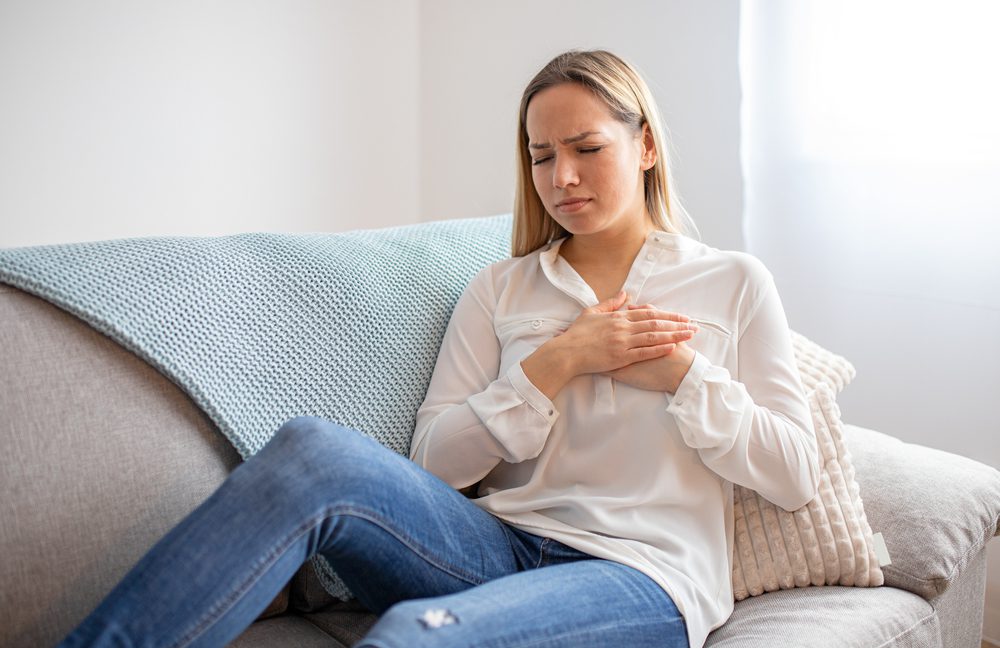
Included in the top 10 distressing associated symptoms of anxiety is heart palpitations, as they are frightening, and many people worry that they have a heart attack, especially when combined with chest pain. Here’s to know if your heart palpitations is anxiety or atrial fibrillation. You may feel that your heart is missing or beating fast, fluttering, or pounding. Some also felt that their heart beats in the head, neck, or throat. While palpitation of the heart is scary, it usually passes after a few seconds.
3. Dizziness
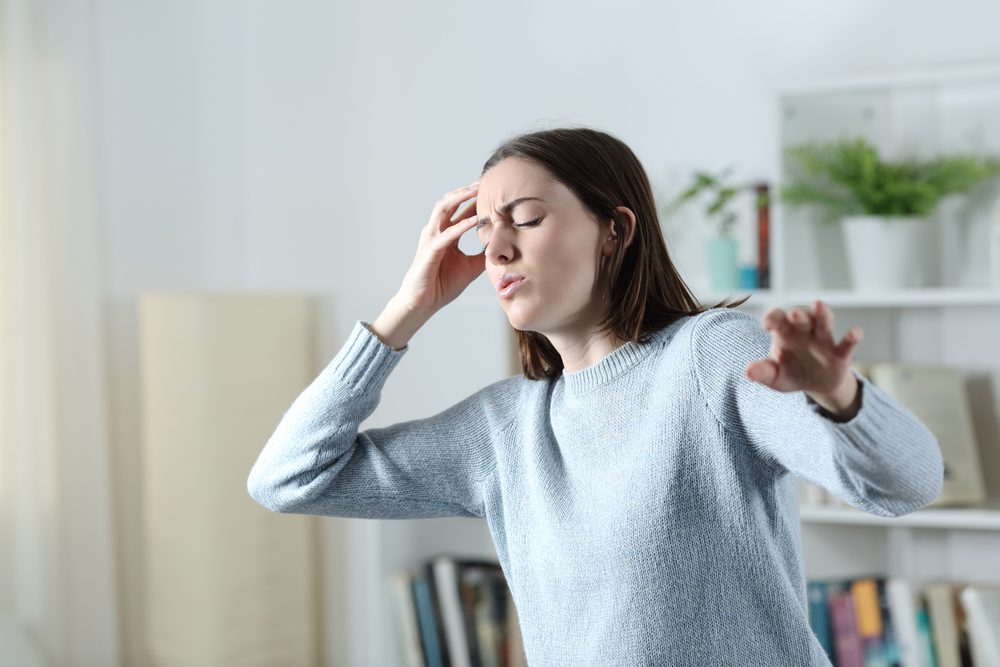
Often, faint, unsteady, or feeling dizzy is the hyperventilation result, even though it might also be caused by some issues associated with anxiety- like neck and shoulders muscle tension. Many people feel lightheaded, and once there’s a panic attack, they will worry they will pass out. However, others with anxiety disorder have balance problems or experience chronic dizziness.
4. Increased Heart Rate

Anxiety is a natural response when in danger and is needed for the survival of humans. Increased anxiety levels trigger the body changes to help prepare and deal with incoming danger and threats, as we all know as fight or flight response. However, if you have chronic anxiety, your mind and body are unable to figure out the imagined or real danger, thus the fight or flight response is continuously active. There’s an increased heart rate in a flight or fight response.
5. Muscle Aches

Joint pain and muscle aches may be caused by poor health or by tension. The cause of tension in muscles is anxiety which may lead to stiffness and pain in any area of our body. Worrying and constant stress may also prevent our immune system from working properly, leading to disease and decreased resistance to infection. The inflammation of the body increases because of infection, which causes some symptoms, including joint pain.
6. Muscle Weakness
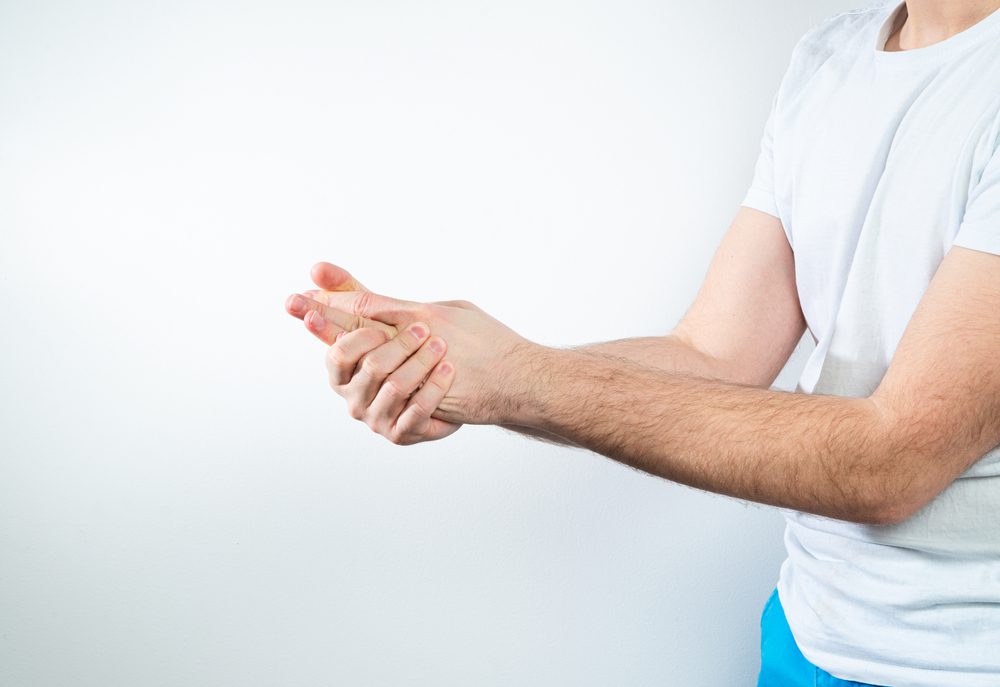
Muscle weakness is another common symptom of chronic anxiety that is experienced in the arms sometimes and the legs. During a flight or fight response, the body prepares to take action towards danger. Redirecting blood flow towards the most needed areas is one way for the body to prepare for the action, including the legs, which we need to run away from danger. If the blood flow is increased towards the legs, it can be like jelly or tingly or feel weak.
7. Headaches
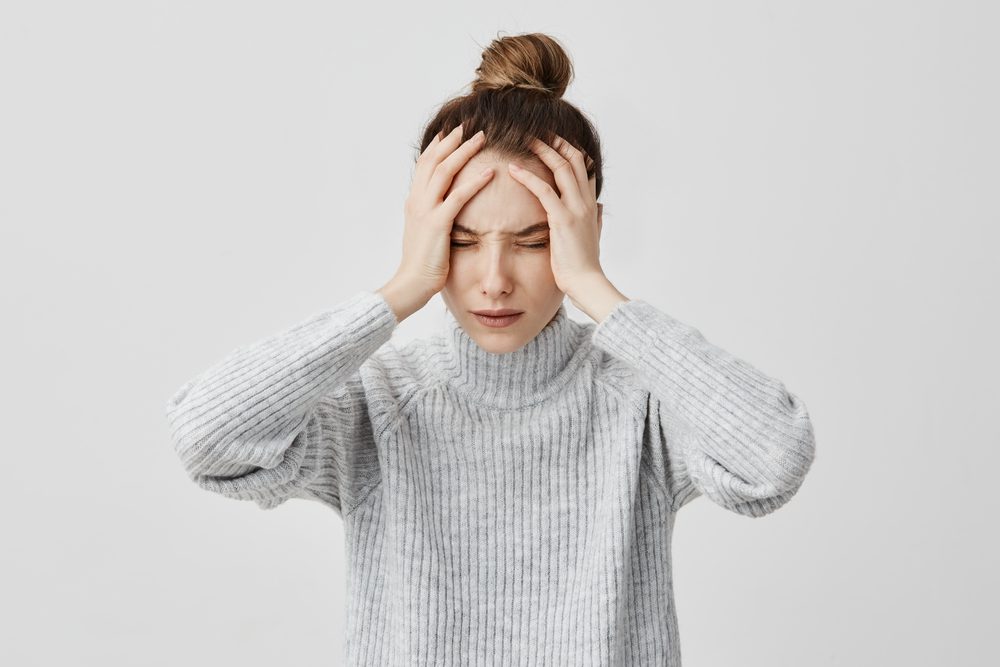
Migraines and headaches are usually caused by tension, especially in the shoulders and neck. Hyperventilation, poor posture, facial tension, and teeth grinding may also cause migraines and headaches. Another common symptom related to anxiety is if you feel pressure around the eyes and head, dull ache, or sharp pain. Anxiety can also cause an imbalance in hormones.
8. Shortness of Breath
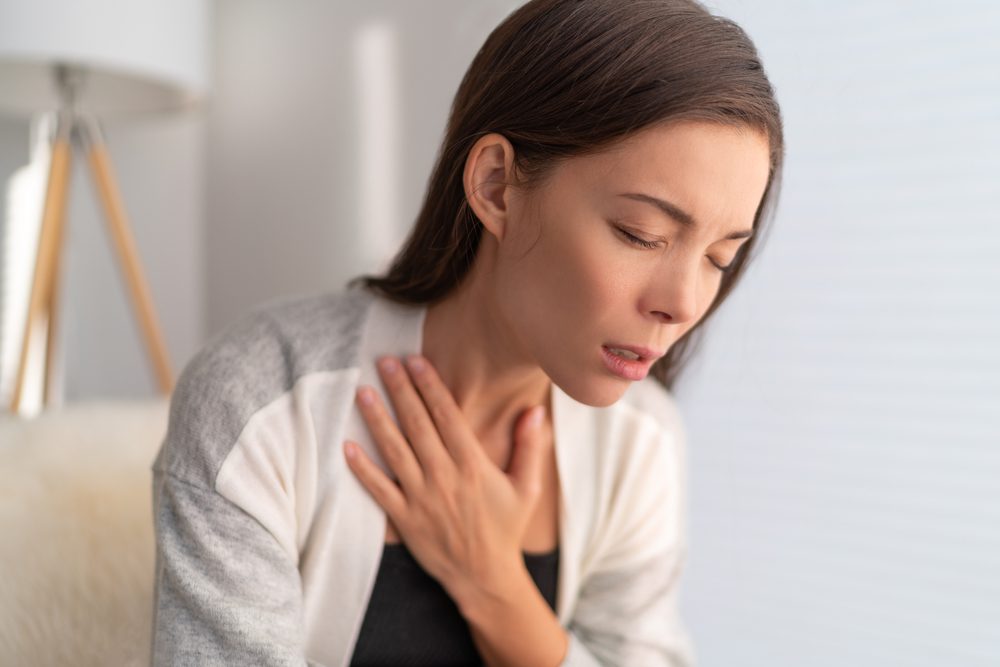
Another distressing symptom is the shortness of breathing which makes many individuals worry about choking, lung problems, or heart attack. Shortness of breathing is caused by hyperventilation (breathing too fast)-the body inhales a lot of oxygen and exhales a lot of carbon dioxide.
9. Digestive Discomfort

Anxiety and stress may also cause diarrhea, heartburn, constipation, stomach cramps, acid indigestion, bloating, and excess gas. IBS (Irritable bowel syndrome) is one of the digestive problems that has been associated with mental health and chronic stress. Sensitivities and food intolerance symptoms can also be increased by anxiety.
10. Tingling Sensations
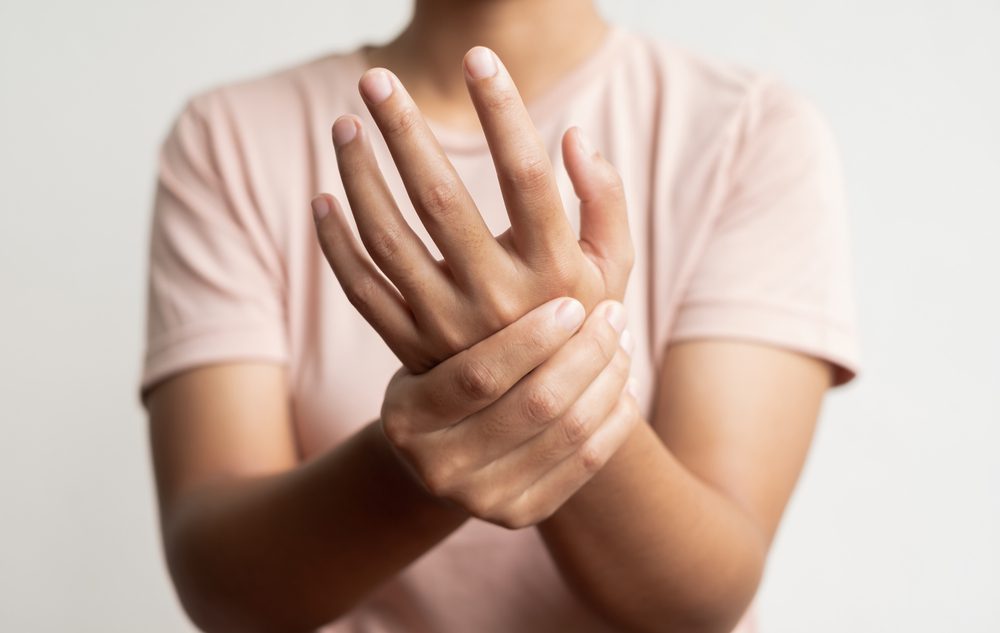
The extremities are the most affected part of the body with numbness, tingling, needles, and pins but can also be experienced in other parts of the body. It’s particularly distressing as many people think that they have a stroke. One of the usual results of hyperventilation is numbness and tingling, which can possibly be caused by physical tension too.
Anxiety can cause distressing physical symptoms. However, accepting and recognizing these symptoms as harmless and temporary will help prevent more anxiety and alleviate fears.

